Conditions in Gaza have deteriorated into a "complete catastrophe," according to one official, with serious shortages of clean water and food as tens of thousands of Palestinians attempt to flee crippling airstrikes and an Israeli ground offensive.
Israel's military said Saturday its forces are readying for the next stages of the war, including "combined and coordinated strikes from the air, sea and land" in response to the unprecedented October 7 terrorist attacks by the Islamist militant group Hamas, which controls the enclave.
At least 1,400 people were killed during Hamas' rampage, the Israel Defence Forces (IDF) told CNN on Sunday, in what US President Joe Biden described as "the worst massacre of Jewish people since the Holocaust."
READ MORE: Warning for thousands of Aussies in Middle East nation
Further escalation of the long-running conflict increasingly risks spilling over regionally, prompting the Pentagon to order a second carrier strike group and squadrons of fighter jets to the region as a deterrence to Iran and Iranian proxies, such as Hezbollah in Lebanon.
The clock is ticking for residents fleeing south through the battered streets of Gaza after the Israeli military told civilians to leave northern areas of the densely populated strip.
More than half of Gaza's 2 million residents live in the northern section that Israel said should evacuate.
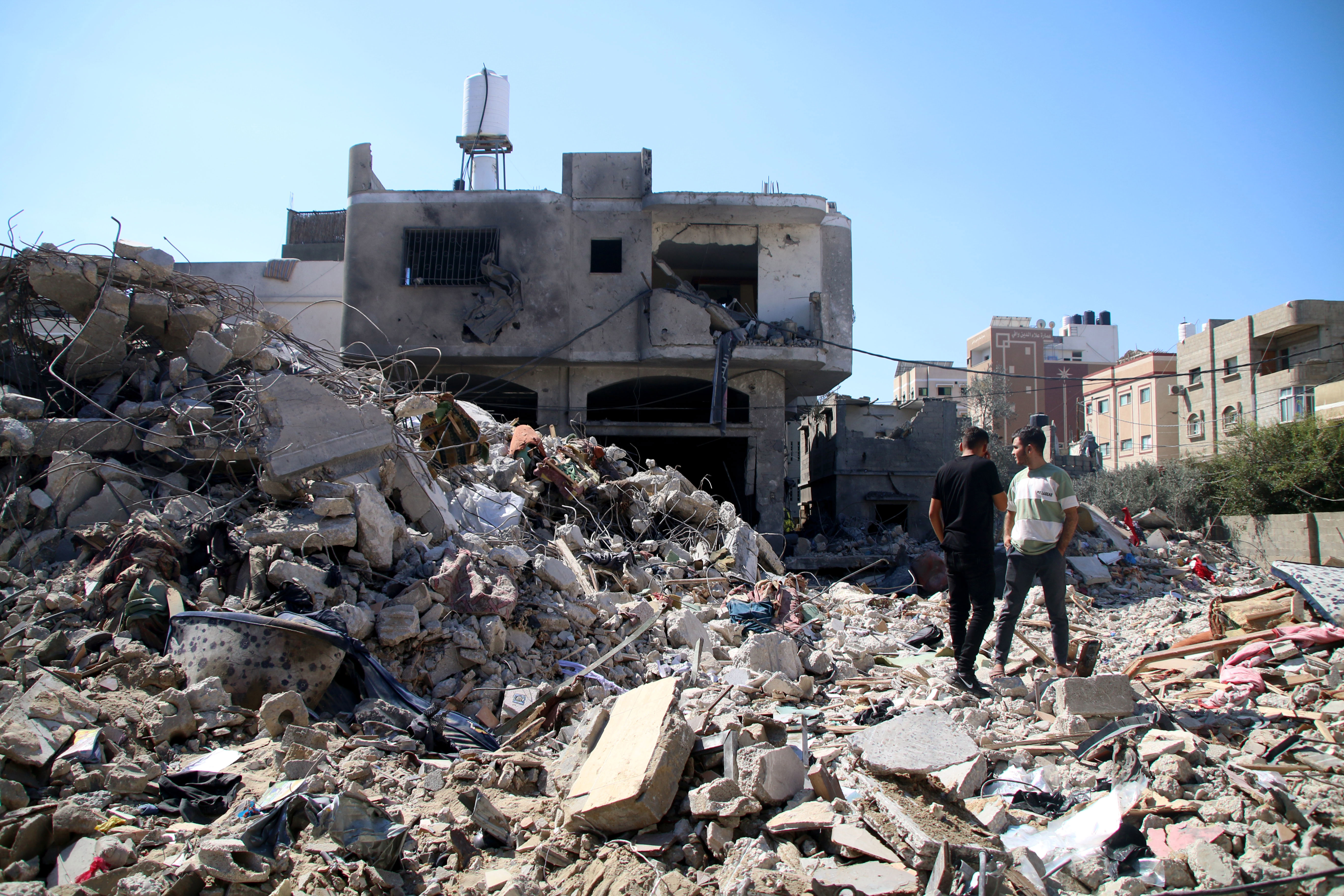
Many families, some of whom were already internally displaced, are now crammed into an even smaller portion of the 365-square-kilometre territory.
Civilians packed into cars, taxis, pickup trucks and donkey-pulled carts. Roads were filled with snaking lines of vehicles strapped with suitcases and mattresses.
Those without other options walked, carrying what they could.
"We will commence significant military operations only once we see that civilians have left the area," IDF spokesperson Lt. Col. Jonathan Conricus told CNN early Sunday. "I cannot stress more than enough to say now is the time for Gazans to leave."
READ MORE: Australian passengers relieved as repatriation flights leave Israel
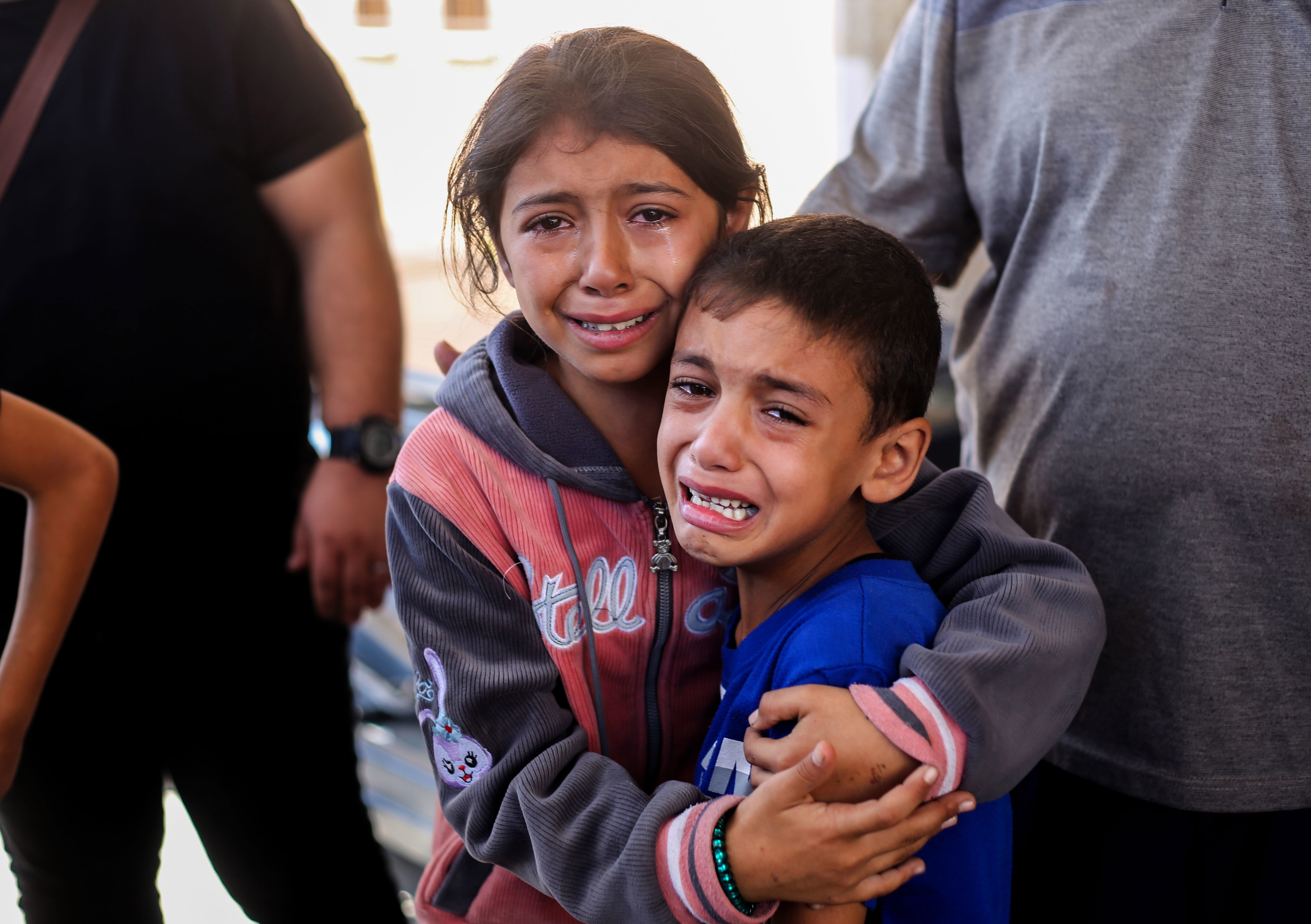
Meanwhile, IDF spokesperson Lt. Col. Peter Lerner told CNN Sunday that the military was seeing a "strong flow" of people moving out of northern Gaza.
Nearly 1 million Gazans have been forced from their homes in the past week since the Hamas attack and the ensuing Israeli retaliation, UNRWA, the UN agency that assists Palestinians, said Saturday.
Even as civilians fled southward, Israeli warplanes continued to blast Gaza over the weekend. Videos showed explosions and bodies along a Gaza evacuation route Friday, as tens of thousands of people abandoned their homes on the advice of the IDF.
Extensive destruction could be seen on Salah Al-Deen street – a main route for evacuation – in videos authenticated by CNN. A number of bodies, including those of children, can be seen on on a flat-bed trailer that appears to have been used to carry people away from Gaza City.
The IDF on Sunday denied that the Israeli military was involved in the strike on Salah Al-Deen street.
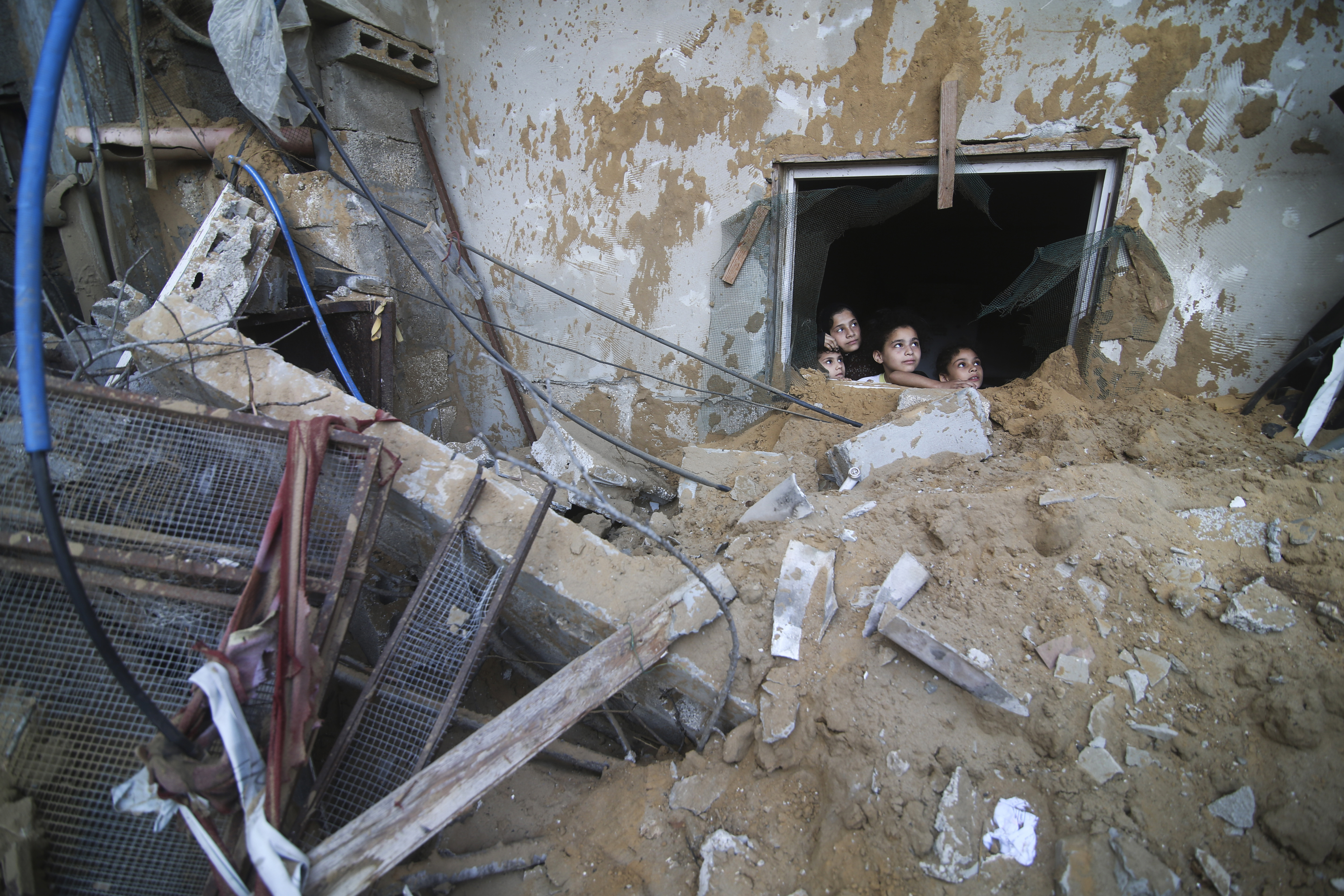
"It was only this morning that we were able to confirm and announce that this was not on IDF strike," IDF spokesperson Lt. Col. Peter Lerner said in an interview with CNN. Lerner instead said it appears from footage the IDF has viewed that "the explosion came from beneath," suggesting "some sort of explosive device."
The Palestinian Health Ministry said at least 2,670 people have been killed and a further 9,600 injured by Israel's airstrikes, which began more than a week ago. The ministry accused Israel's military of "direct targeting of medical staff and their families."
Casualties in Gaza over the past eight days have now surpassed the number of those killed during the 51-day Gaza-Israel conflict in 2014, according to the spokesperson for the Palestinian Health Ministry.
Richard Brennan, a World Health Organization official in Cairo, told CNN that 60 percent of those killed in Gaza the last week were women and children.
Several United Nations agencies have warned that mass evacuation under siege conditions will lead to disaster, and that the most vulnerable Gazans, including the sick, elderly, pregnant and disabled, will not be able to relocate at all. For days, Israel has cut off the Gaza population's access to electricity, food and water.
Israeli Prime Minister Benjamin Netanyahu's office told CNN Sunday that Israel has restored water to southern Gaza, but the director of the Water Authority there said he could not be sure it was true because electricity had not been restored.
The United Nations' Population Fund (UNFPA) has warned of the "nightmare" situation facing the 50,000 pregnant women in Gaza, as the enclave's health system teeters on the brink of collapse.
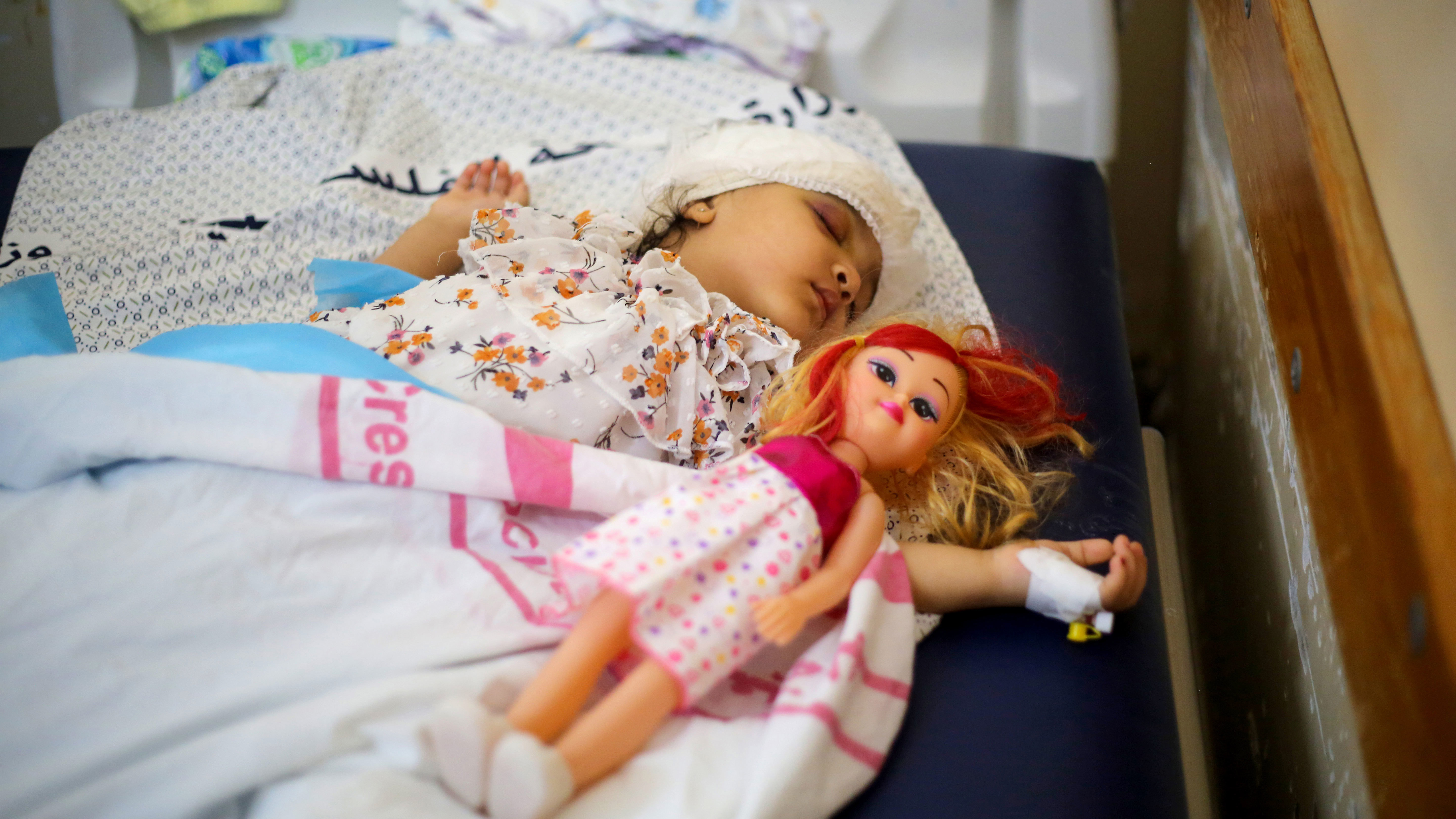
About 5,000 women are expected to give birth in the coming month, some of whom could face complications, said UNFPA representative Dominic Allen. "These pregnant women that we're seriously concerned about have nowhere to go. They're facing unthinkable challenges," he told CNN in an interview Sunday.
A growing number of nations, global rights groups and organisations are calling on Israel to respect international rules of war, urging the protection of civilians' lives, and not to target hospitals, schools and clinics.
The World Food Programme (WFP) warned on Sunday that it's running out of reserve stock inside Gaza and needs replenishment as soon as possible.
The WFP has "food for 1.3 million people for two weeks piled up at the borders into Gaza," WFP regional director Corinne Fleischer told CNN in an interview from Cairo on Sunday, adding: "People are really getting hungry."
Fleischer said the WFP had reached 520,000 people in Gaza so far, providing them with canned food, bread and cash to use in stores. They are expecting to reach 224,000 people on Sunday.
As food, clean drinking water and medical supplies in Gaza run out, there are urgent pleas for humanitarian aid to be allowed in. Footage showed aid convoys continuing to arrive into Egypt's El-Arish stadium in preparation to enter Gaza through the Rafah land crossing. On the Gazan side, thousands of people are stuck at the crossing, with families telling CNN they have been unable to cross into Egypt.
US Secretary of State Antony Blinken promised Sunday that "Rafah will be open," after meeting with Egyptian President Abdel Fattah El-Sisi during a whistle-stop tour of several nations in the Middle East. "We're putting in place with the UN, with Egypt, Israel, with others, the mechanism by which to get the assistance in and to get it to people who need it," Blinken said.
Blinken announced Biden's appointment of former US Ambassador to Turkey David Satterfield to help coordinate US aid efforts. Blinken said Satterfield will be "on the ground tomorrow" in Israel.
Pope Francis on Sunday called for the establishment of humanitarian corridors in Gaza and for the release of hostages taken by Hamas.
Speaking in an address at St. Peter's Square in Vatican City on Sunday, he said: "I'm thinking of the many people who are suffering, the young people and the elderly and I renew my appeal for the release of the prisoners.
"And please respect the humanitarian situation in Gaza to guarantee humanitarian corridors to help and assist the entire population."
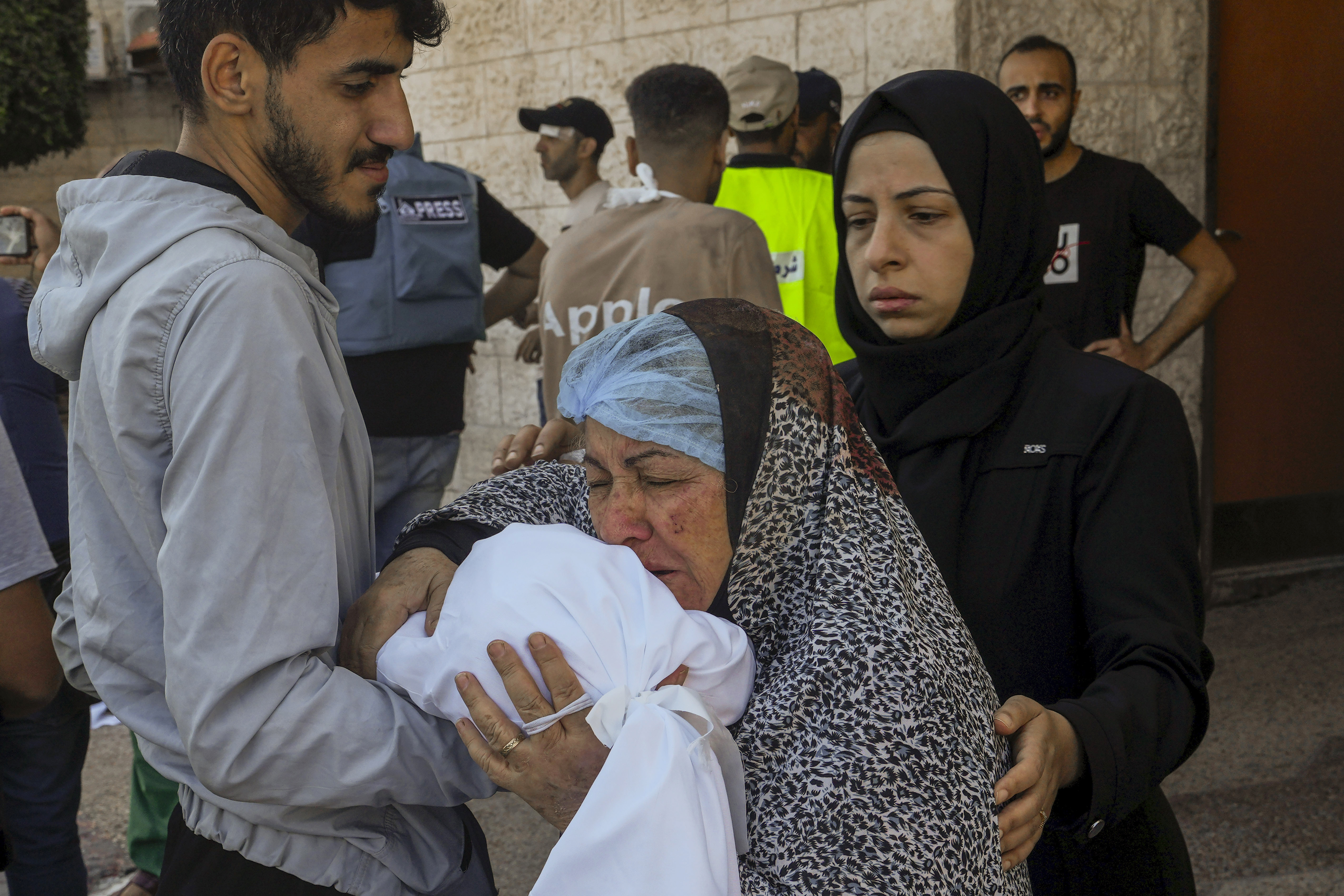
'Complete catastrophe' in Gaza
There is no more electricity and those with fuel-powered generators will soon live in complete blackout. Internet access, through which residents communicate their plight to the world, is also shrinking.
MSF's Benoit told CNN Saturday that many people in Gaza are beginning to suffer from severe dehydration.
"Everyone there feels like they are likely to be collateral damage," Benoit said. "The health care system there has always been extra fragile and was considered (a) humanitarian chronic emergency for many, many years, and now it's a complete catastrophe."
Palestine Red Crescent Society spokesperson Nebal Farsakh told CNN the situation in Gaza is "devastating" and though they had been notified by Israel to evacuate Al-Quds hospital in Gaza City, they did not have the means to do so.
"We have around 300 patients at the hospital. Some of them are in the intensive care unit. We have children in incubators. We can't evacuate them," Farsakh said.
What would a ground invasion look like?
Israel, which has massed troops and military equipment at the border with Gaza, said its ramped up offensive will feature hundreds of thousands of reservists and encompass "a wide range of operational offensive plans."
In addition to widespread airstrikes, Israel's army is preparing troops for an "expanded arena of combat," the IDF said in a statement on Saturday. The preparations have placed "an emphasis on significant ground operations."
Hamas has shown a level of military capability far beyond what was previously thought, and a recent CNN investigation found it is probably well-prepared for the next phase of the war.
Complicating an Israeli offensive in Gaza are up to 150 hostages captured by Hamas – including soldiers, civilians, women, children and the elderly – and who are being held in the crowded enclave.
IDF spokesperson Conricus said it is a priority to get hostages out of Gaza, despite the difficulty that a dense urban area adds to the fight.
Pointing to the "elaborate network of tunnels" that Hamas has, he said hostages "are most likely held underground in various locations."
"Fighting will be slow. Advances will be slow, and we will be cautious," he said.
Regional concerns grow
As Israel battles Hamas, it also faces the threat of a wider conflict on new fronts.
Israel has said it is ready in case there are attacks from neighbouring Lebanon or Syria.
Syria's military reported late Saturday that an "air aggression" by Israel, originating from the Mediterranean Sea, damaged Aleppo International Airport and rendered it nonoperational.
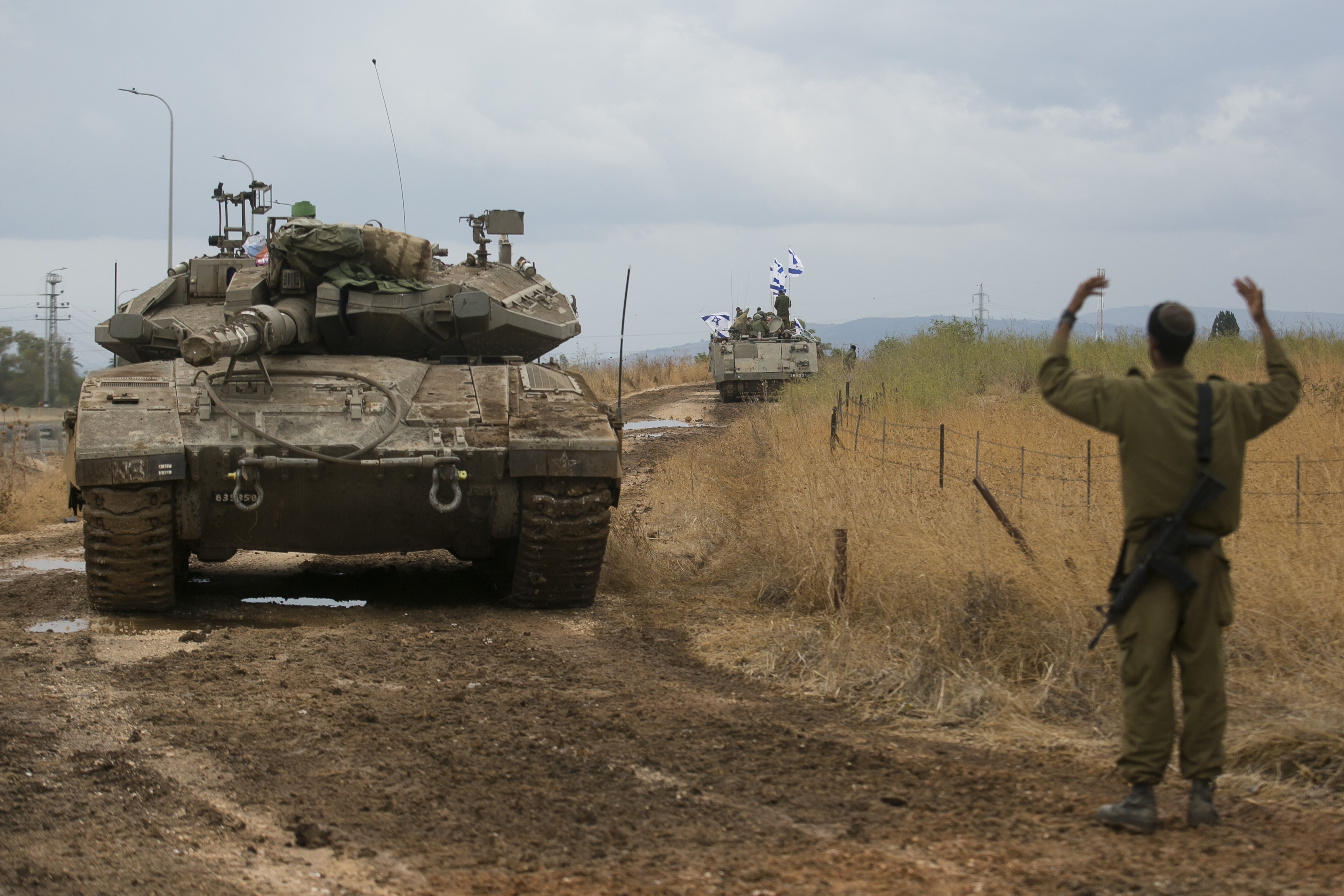
Meanwhile, Iran's Mission to the UN warned on Saturday that if Israel does not stop its attacks on Gaza, "the situation could spiral out of control and ricochet far-reaching consequences."
The comments came as Iran's Foreign Minister Hossein Amir-Abdollahian met with Hamas political leader Ismail Haniyeh in Doha, Qatar on Saturday, according to Iran's official news agency IRNA. The agency said it was the first official meeting between Iranian officials and Haniyeh since surprise Hamas attack on Israel that Hamas called Al-Aqsa storm.
Hostilities with neighbouring Lebanon are being closely monitored internationally, as an escalation could draw the powerful Iran-backed Hezbollah paramilitary group into the conflict.
For days, Lebanon-based Palestinian militants have launched rockets into Israel, leading to Israeli attacks on Lebanese territory, including Hezbollah positions. Hezbollah has fired back at Israeli border positions with precision-guided missiles.
On Saturday, Israel returned fire after Hezbollah launched an attack on the disputed territory of the Shebaa farms near the Israel-Lebanon border, with CNN teams on the ground reporting prolonged shelling.
Mourners also gathered Saturday for the funeral of Reuters journalist Issam Abdallah in southern Lebanon after he was killed when Israel fired artillery into the area where he and other journalists were on Friday. The IDF said it was reviewing the circumstances surrounding the incident on the Lebanese border.
